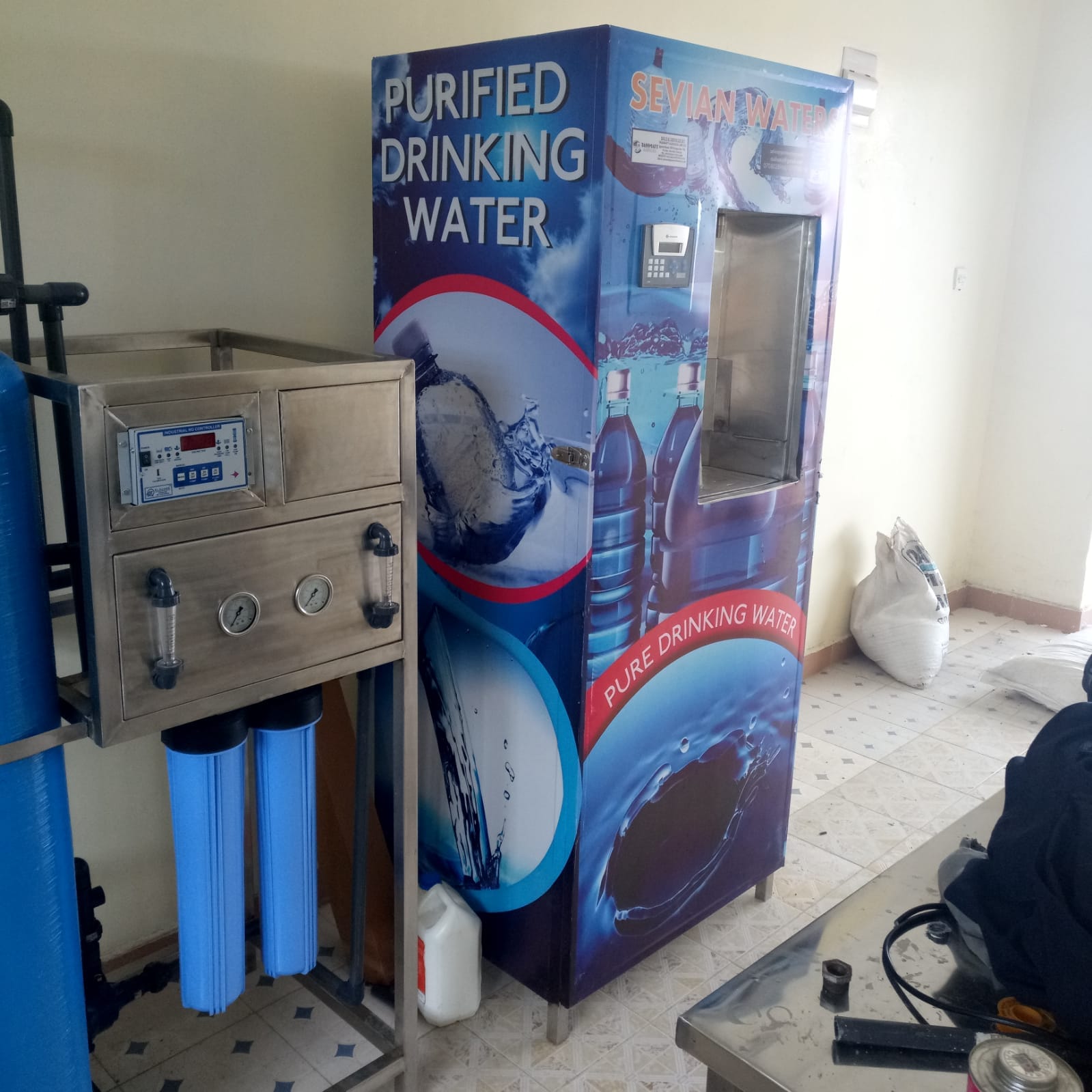The water vending ATM business in Kenya has been gaining popularity in recent years as the country grapples with water scarcity and inadequate water distribution systems. This innovative business model involves installing automated machines that dispense clean drinking water to the public at affordable prices. The machines use smart card technology to dispense water, which can be purchased in denominations as low as KES 5.
Kenya is a country that is highly vulnerable to water scarcity, with only 19% of its land area being suitable for agriculture. The country’s water supply is also highly dependent on seasonal rains, making it unreliable in many parts of the country. Furthermore, the water distribution system is plagued by inefficiencies, which result in significant losses of water during transportation and distribution. These factors make it challenging for many Kenyans to access clean and safe drinking water, particularly in urban areas.
The water vending ATM business seeks to address these challenges by providing a convenient and affordable source of clean water to the public. The machines are typically installed in public places such as markets, bus stations, and schools, where they can be easily accessed by people in need of water. The machines are connected to a water treatment plant, which purifies the water and stores it in a tank for dispensing.
One of the key advantages of the water vending ATM business is its affordability. The machines dispense water at a lower cost than bottled water, making it accessible to a wider range of people. Furthermore, the machines are designed to dispense water in small denominations, which means that people can purchase only what they need, rather than having to buy a large container that they may not be able to afford.
Another advantage of the water vending ATM business is its convenience. The machines are available 24/7, which means that people can access water at any time of the day or night. This is particularly important in areas where water supply is erratic, and people may not have access to water for days at a time. The machines are also easy to use, with clear instructions provided in both English and Swahili.
The water vending ATM business is also environmentally friendly. By providing a convenient source of clean water, the machines reduce the need for people to purchase bottled water, which is often packaged in non-biodegradable plastic containers. This helps to reduce plastic waste and promote a more sustainable approach to water consumption.
However, the water vending ATM business also faces several challenges. One of the main challenges is ensuring the sustainability of the business model. The machines require regular maintenance, and the water treatment plant must be operated by trained personnel to ensure that the water is purified to the required standard. The cost of maintenance and operation must be factored into the pricing of the water to ensure that the business remains profitable.
Another challenge is the availability of clean water. In some areas, the water supply may be contaminated, making it unsuitable for purification and dispensing through the vending machines. In such cases, alternative sources of water must be found, which may increase the cost of production and reduce the profitability of the business.
In conclusion, the water vending ATM business in Kenya has the potential to provide a convenient and affordable source of clean drinking water to the public, particularly in urban areas. However, the business model must be carefully planned and executed to ensure its sustainability and profitability. With proper planning and execution, the water vending ATM business can contribute significantly to improving access to clean water in Kenya.
